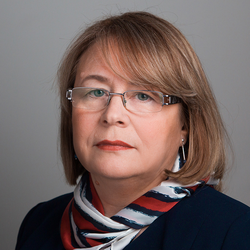The Institute of Biology (BI) of the University of Latvia (LU) was founded in 1951 as a research institute of the Latvian Academy of Sciences (director Prof. Alfrēds Ozols (1952–1965)). During this period, such branches of science and research directions as botany, plant genetics, plant mineral nutrition, plant physiology, bioindication, hydrobiont biochemistry, animal physiology, experimental entomology, marine and inland water hydrobiology, ornithology, parasitology and radiobiology were created and developed. In the following years (directors Prof. A. Valdmanis (1965–1971), Prof. G. Andrušaitis (1972–1998)) and Prof. V. Melecis (1998-2015). Some areas of research such as parasitology, radiobiology and plant physiology were closed, while others were established - geobotany, hormone biochemistry, magnetobiology, genomics and bioinformatics. After the restoration of Latvia's independence in 1991, the Latvian Academy of Sciences transformed into a European-type academy and the Institute of Biology became a legally independent structural unit of the LU, joining the LU as a basic structural unit in 2016. The institute is the leading research center in biology in Latvia. Currently, the institute includes 13 laboratories.
With the establishment of the new Faculty of Medicine and Life Sciences of the University of Latvia from July 2024, the institute operates as a structural unit of the faculty.
The institute's research activities can be divided into two main research directions:
1) Research of Latvia's natural resources, their rational use, environmental and ecological problems, nature protection;
2) Study of life processes and biological productivity of plants and animals.
The Institute also houses the Latvian Ringing Center, the Latvian Herbarium, the Seed Collection and a large entomological collection. The institute has several research bases: the Engure Ornithological Research Center, the Pape Ornithological Station and the Mazsalac Station of the National Long-Term Ecological Research Network, which are organized and intensively used by the institute's scientists and students.
Acting Director


 Academic Centre
Academic Centre